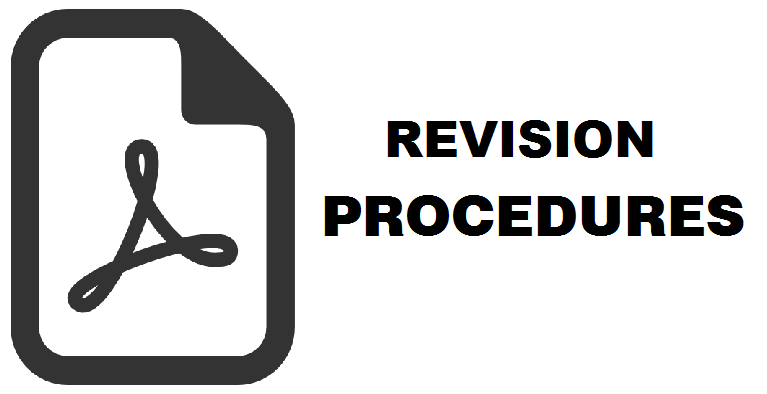KERUSAKAN EKOSISTEM MANGROVE AKIBAT KONVERSI LAHAN DI KAMPUNG TOBATI DAN KAMPUNG NAFRI, JAYAPURA
Meivy Arizona(1*), Sunarto Sunarto(2), Djalal Tandjung(3)
(1) Fakultas Geografi, Universitas Gadjah Mada, Yogyakarta
(2) Fakultas Geografi, Universitas Gadjah Mada, Yogyakarta
(3) Fakultas Matematikan dan Ilmu Pengetahuan Alam, Universitas Negeri Yogyakarta, Yogyakarta
(*) Corresponding Author
Abstract
ABSTRAK Daerah penelitian adalah desa Tobati dan Nafri di Jayapura-Papua. Tujuan dari penelitian ini adalah 1) mengetahui jenis-jenis mangrove yang telah diubah oleh aktivitas manusia, 2) untuk mengetahui kondisi air dan tanah di daerah yang telah diubah oleh konversi lahan, 3) untuk mengetahui tanggapan masyarakat tentang ekosistem mangrove rusak dan mereka memberikan kontribusi dalam pengelolaan ekosistem mangrove. Metode yang digunakan adalah garis transek plot kuadrat di zona mangrove dan daerah distribusi dengan tiga kali pengulangan. Ukuran plot kuadrat adalah 10m x 20m untuk pohon, 1m x 1m untuk tumbuh-tumbuhan, bibit dan rerumputan. Parameter adalah ukuran kerapatan, frekuensi, daerah basal dan nilai-nilai penting mangrove. Langkah-langkah parameter fisika adalah air yang meliputi pH suhu, salinitas, dan kualitas tanah seperti bahan organik, Savailable Pavailable, Caavailable, Mgavailable, Naavailable, Ntotal, pH, suhu dan tekstur tanah. Analisis parameter fisika menggunakan analisis varian. Sosial parameter yang diukur adalah jumlah populasi, pekerjaan, pendidikan, dan pengetahuan tentang ekosistem mangrove. Metode yang digunakan untuk mengidentifikasi budaya masyarakat desa Tobati adalah survied dan diwawancarai dengan 50 responden. Para responden telah dipisahkan dalam 2 kelompok dari 40 repondents yang diambil dari desa Tobati dan sisanya diambil dari desa Nafri. Hasil penelitian menunjukkan bahwa hanya tujuh jenis mangrove (Rhizophora mucronata, Rhizophora apiculata, Rhizophora sfylosa, tagal Csriops, Snnneratia alba, Xylocarpus dan hydrophyllacea mollucensis Scyphiphora) di desa Tobati. Spesies mangrove yang menunjukkan di desa Nafri yang sembilan jenis, tujuh spesies yang mirip dengan Tobati kecuali Bruguiera gymnorrhiza dan Aegiceras comiculatum tidak menunjukkan di desa Tobati. Keberadaan vegetasi mangrove yang telah diubah oleh konversi lahan di desa Tobati didominasi oleh Rhizophora spp. Di desa Nafri sebagai daerah kontrol menunjukkan bahwa pembentukan mangrove masih dalam kondisi baik.
ABSTRACT The research area are Tobati and Nafri villages in Jayapura-Papua. The aim of this research is 1) to study the kinds of mangrove that had been changed by human activities, 2) to study the condition of water and soil in the area which had been changed by land conversion, 3) to know the society responses about the mangrove ecosystems damaged and their contributes in mangrove ecosystems management.The methods used are transect line quadrate plots across the mangrove zones and distribution area with three times repeating. The quadrate plot sizes were 10m x 20m for trees, 1m x 1m for herbs, seedling and grasses. The parameter measures were densities, frequencies, basal areas and important values of mangrove. The physic parameter measures were water that included temperature pH, salinity, and soil qualities such as organic matters, Savailable Pavailable, Caavailable, Mgavailable, Naavailable, Ntotal, pH, temperature and the soil textures. The analysis of the physic parameter was using variant analysis. Social parameter that been measured were numbers of population, occupation, education, and knowledge about mangrove ecosystems. The methods that used for identifying the culture of the society of Tobati villagers were survied and interviewed with 50 respondents. The respondents have been separated in 2 groups of 40 repondents that were taken from Tobati village and the rest of it were taken from Nafri village.The results showed that mere are seven species of mangrove (Rhizophora mucronata, Rhizophora apiculata, Rhizophora sfylosa, Csriops tagal, Snnneratia alba, Xylocarpus mollucensis and Scyphiphora hydrophyllacea) in Tobati village. Species mangrove that showed in Nafri village were nine species, seven species which similar with Tobati except for Bruguiera gymnorrhiza and Aegiceras comiculatum were not showed in Tobati village. The existence of mangrove vegetation that been changed by land conversion in Tobati village were dominated by Rhizophora spp. In Nafri village as the control area showed that the formation of mangrove is still in the good condition.
Keywords
Full Text:
PDF (Bahasa Indonesia)Article Metrics
Refbacks
- There are currently no refbacks.
Copyright (c) 2016 Majalah Geografi Indonesia

This work is licensed under a Creative Commons Attribution-ShareAlike 4.0 International License.
Volume 35 No 2 the Year 2021 for Volume 39 No 1 the Year 2025
ISSN 0215-1790 (print) ISSN 2540-945X (online)








